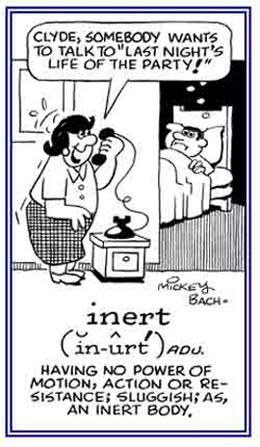art-, arti-
(Latin: skill, handicraft, trade, occupation, art)
artificialness (noun)
1. Contrived by art rather than by nature.
2. Not arising from natural growth or characterized by vital processes.
2. Not arising from natural growth or characterized by vital processes.
1. A person skilled in artillery or gunnery.
2. A gunner; an artilleryman.
2. A gunner; an artilleryman.
1. Large-caliber weapons, such as cannon, howitzers, and missile launchers, that are operated by trained crews: "The branch of an army that specializes in the use of such weapons or artilleries."
2. The science of the use of guns; gunnery.
3. Weapons, such as catapults, arbalests, and other early devices, used for discharging missiles.
4. Etymology: from about 1386, "warlike munitions", from Old French artillerie, from artillier, "to provide with engines of war", which probably is from Middle Latin articulum, "art, skill"; a diminutive of Latin ars, artis, "art".
2. The science of the use of guns; gunnery.
3. Weapons, such as catapults, arbalests, and other early devices, used for discharging missiles.
4. Etymology: from about 1386, "warlike munitions", from Old French artillerie, from artillier, "to provide with engines of war", which probably is from Middle Latin articulum, "art, skill"; a diminutive of Latin ars, artis, "art".
The sense of "engines for discharging missiles" (catapults, slings, bows, etc.) is from 1496; and that of "ordnance, large guns" is from 1533.
1. A skilled manual worker; a crafts person.
2. A skilled worker who practices some trade or handicraft
2. A skilled worker who practices some trade or handicraft
1. A person whose creative work shows sensitivity and imagination.
2. Someone, such as a painter, sculptor, or writer, who is able by virtue of imagination and talent or skill to create works of aesthetic value, especially in the fine arts.
3. A person whose work shows exceptional creative ability or skill.
4. Anyone, such as an actor or singer, who works in the performing arts.
5. A person who is adept at an activity, especially one involving trickery or deceit; such as, a con artist.
2. Someone, such as a painter, sculptor, or writer, who is able by virtue of imagination and talent or skill to create works of aesthetic value, especially in the fine arts.
3. A person whose work shows exceptional creative ability or skill.
4. Anyone, such as an actor or singer, who works in the performing arts.
5. A person who is adept at an activity, especially one involving trickery or deceit; such as, a con artist.
1. A public performer; such as, a dancer, singer, or other public performer.
2. Someone who aspires to being artistic or a person with artistic pretensions.
2. Someone who aspires to being artistic or a person with artistic pretensions.
artistic (adjective)
1. Relating to or characteristic of art or artists.
2. Sensitive to or appreciative of art or beauty: "They had an artistic temperament even as children."
3. Showing imagination and skill; such as, an artistic design.
2. Sensitive to or appreciative of art or beauty: "They had an artistic temperament even as children."
3. Showing imagination and skill; such as, an artistic design.
artistical (adjective)
1. Pertaining to art or to artists.
2. Something made in the manner of an artist.
3. Conformable to art.
4. Characterized by art.
5. Showing taste or skill.
2. Something made in the manner of an artist.
3. Conformable to art.
4. Characterized by art.
5. Showing taste or skill.
artistically (adverb)
In an artistic manner: "The house was artistically decorated, inside and outside."
1. A superior skill that a person can learn by study and practice and observation.
2. The creative ability and skill of an artist, or the expression of this.
3. Great ability and skill in doing something.
2. The creative ability and skill of an artist, or the expression of this.
3. Great ability and skill in doing something.
artless (adjective)
1. Lacking skill, knowledge, or elegance.
2. Poorly made or done; crude.
3. Having or displaying no guile, cunning, or deceit.
4. Free of artificiality; natural.
2. Poorly made or done; crude.
3. Having or displaying no guile, cunning, or deceit.
4. Free of artificiality; natural.
artlessly (adverb)
1. In a crude and unskilled manner.
2. Lacking tact or taste; blunt or offensive.
2. Lacking tact or taste; blunt or offensive.
artlessness (s) (noun)
1. Simple and honest; not wanting to deceive.
2. The quality of innocent naivete.
2. The quality of innocent naivete.
The lack of strong colonic muscular activity, often resulting in colonic distention and subsequent constipation.
inert (adjective), more inert, most inert
1. Characteristic of someone or something being unable to move or to act; inanimate: Susan couldn't use her hand, which was inert after having broken her wrist, and which was put into a cast by the doctor.
2. A reference to a person or an animal being sluggish in action or motion; lethargic: Debbie seemed to be quite inert and slow in getting up in the morning after sleeping only 3 hours during the night.
3. In chemistry, not readily reactive with other elements; forming few or no chemical compounds: Argon and neon are inert gasses which seemingly don't respond to other substances.
4. Etymology: from French inerte (about the 16th century); from Latin inertem, iners, "unskilled, inactive"; from in-, "without" + ars, artis, "skill".

© ALL rights are reserved.
Go to this Word A Day Revisited Index
2. A reference to a person or an animal being sluggish in action or motion; lethargic: Debbie seemed to be quite inert and slow in getting up in the morning after sleeping only 3 hours during the night.
3. In chemistry, not readily reactive with other elements; forming few or no chemical compounds: Argon and neon are inert gasses which seemingly don't respond to other substances.
4. Etymology: from French inerte (about the 16th century); from Latin inertem, iners, "unskilled, inactive"; from in-, "without" + ars, artis, "skill".



